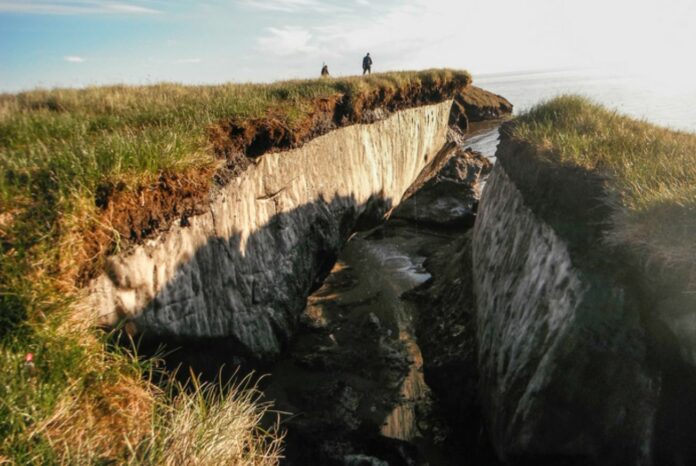An international group of researchers, which includes scientists from Oregon State University (OSU), has authored a new report that highlights numerous hazardous climate feedback loops and emphasizes the urgency for action in both research and policy.
The analysis, which was just published in the scientific journal One Earth, claims that a very fast decline in emissions would be necessary to control planet warming, in part because of amplified climate feedbacks.
The team identified and documented 41 climate feedback loops with significant implications for climate change forecasting.
Climate feedback loops are mechanisms that may either increase or decrease the consequences of human greenhouse gas emissions, starting a recursive cycle that never ends.
The warming effect is amplified by several massive amplifying feedbacks. The researchers discovered 27 amplifying feedbacks, 7 dampening feedbacks, and 7 unclear feedbacks in all.
Many American and foreign experts are listed as co-authors on the article along with the primary authors, William Ripple, a distinguished professor of ecology at OSU, and postdoctoral researcher Christopher Wolf. Ripple collaborates with the Conservation Biology Institute as a scientific affiliate.
The authors draw attention to a number of especially alarming feedback loops, including the permafrost feedback, in which increasing temperatures cause permafrost to melt, which increases carbon dioxide and methane emissions, further causing warming.
Other dangerous feedbacks include peatlands that dry out or catch fire and forests that die back. The existing strategies for carbon drawdown may fall short of their goals of appropriately limiting future warming since these feedbacks may not yet be completely accounted for in climate models.
Moreover, according to co-author Jillian Gregg of Terrestrial Ecosystems Research Associates, “some climate feedback loops are associated with tipping points, which will make it difficult to reverse their effects.”
“Many of the feedback loops we examined significantly increase warming because of their connection to greenhouse gas emissions,” says lead author Christopher Wolf, adding, “to the best of our knowledge, this is the most extensive list available of climate feedback loops, and not all of them are fully considered in climate models. What’s urgently needed is more research and modeling and an accelerated cutback of emissions.”
Driven by the many climatic feedbacks that magnify their effects, the authors suggest two recommendations.
Considering that “climate disasters” like wildfires, coastal floods, permafrost melt, strong storms, and other extreme weather are already happening, it is important to reduce short-term warming.
Reduce the potential serious risks posed by impending climatic tipping points, which are becoming closer and closer as a result of the existence of several amplifying feedback loops. A tipping point is a moment at which a change in a climatic system component starts to self-replicate.
“Transformative, socially just changes in global energy and transportation, short-lived air pollution, food production, nature preservation and the international economy, together with population policies based on education and equality, are needed to meet these challenges in both the short and long term,” points out lead author William Ripple.
“It’s too late to fully prevent the pain of climate change, but if we take meaningful steps soon while prioritizing human basic needs and social justice, it could still be possible to limit the harm.”
To become carbon neutral, Ripple said that strategically establishing “large natural carbon sinks such as forests is a critical step toward reaching carbon neutrality.”
In conclusion, the authors issued a plea for revolutionary change to address the climate catastrophe and the threats presented by feedback loops.
Wolf adds, “policies are needed to facilitate transformative and socially just changes across many sectors, including energy and food production.”
Image Credit: Brandt Meixell, USGS
